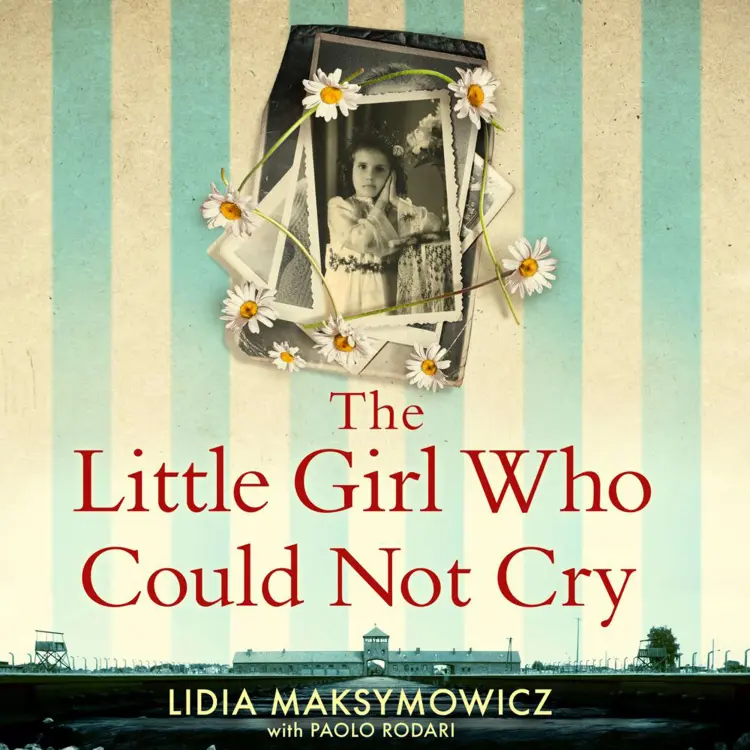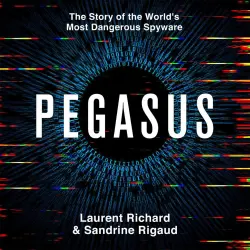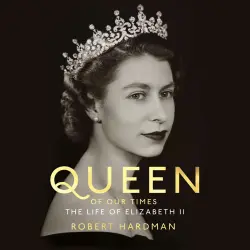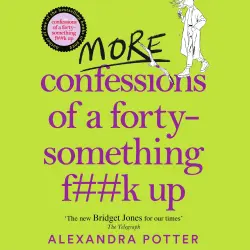
The Little Girl Who Could Not Cry
Lidia Maksymowicz
The Little Girl Who Could Not Cry: A heartbreaking, inspiring true story of survival in Auschwitz-Birkenau. Foreword by Pope Francis.
Unabridged
4 horas 21 minutos
Nota: La reproducción de los audiolibros o de las obras de audio en las respectivas plataformas, por ejemplo Spotify, puede generar gastos. Lismio no tiene ninguna influencia sobre qué audiolibros y obras de audio están disponibles en el servicio.
Algunos artículos contienen enlaces de afiliados (marcados con un asterisco *). Si hace clic en estos enlaces y compra productos, recibiremos una pequeña comisión sin coste adicional para usted. Su apoyo ayuda a mantener este sitio en funcionamiento y a seguir creando contenidos útiles. Gracias por su apoyo.
Unabridged
4 horas 21 minutos
Nota: La reproducción de los audiolibros o de las obras de audio en las respectivas plataformas, por ejemplo Spotify, puede generar gastos. Lismio no tiene ninguna influencia sobre qué audiolibros y obras de audio están disponibles en el servicio.
Algunos artículos contienen enlaces de afiliados (marcados con un asterisco *). Si hace clic en estos enlaces y compra productos, recibiremos una pequeña comisión sin coste adicional para usted. Su apoyo ayuda a mantener este sitio en funcionamiento y a seguir creando contenidos útiles. Gracias por su apoyo.
De la editorial
The Number 1 International Bestseller.
The heartbreaking, inspiring true story of a girl sent to Auschwitz who survived Mengele's evil experiments. With a foreword written by His Holiness Pope Francis.
Lidia was just three years old when she arrived in Auschwitz-Birkenau with her mother, grandparents and foster brother. They were from Belarus, their 'crime' that they supported the partisan resistance to Nazi occupation. Lidia was picked by Dr Josef Mengele for his experiments and sent to the children's block where she survived eighteen months of hell. Injected with infectious diseases, desperately malnourished, she came close to death. Her mother - who risked her life to secretly visit Lidia - was her only tie to humanity.
By the time Birkenau was liberated her family had disappeared. Even her mother was presumed dead. Lidia was adopted by a woman from the nearby town of Oswiecim. Too traumatised to feel emotion, she was not an easy child to care for but she came to love her adoptive mother and her new home. Then, in 1962, she discovered that her birth parents were still alive in the USSR and wanted her back. Lidia was faced with an agonising choice . . .
The Little Girl Who Could Not Cry is powerful, moving and ultimately hopeful, as Lidia comes to terms with the past and finds the strength to share her story - even making headlines when she meets Pope Francis, who kisses her tattoo. Above all she refuses to hate those who hurt her so badly, saying, 'Hate only brings more hate. Love, on the other hand, has the power to redeem.'
The heartbreaking, inspiring true story of a girl sent to Auschwitz who survived Mengele's evil experiments. With a foreword written by His Holiness Pope Francis.
Lidia was just three years old when she arrived in Auschwitz-Birkenau with her mother, grandparents and foster brother. They were from Belarus, their 'crime' that they supported the partisan resistance to Nazi occupation. Lidia was picked by Dr Josef Mengele for his experiments and sent to the children's block where she survived eighteen months of hell. Injected with infectious diseases, desperately malnourished, she came close to death. Her mother - who risked her life to secretly visit Lidia - was her only tie to humanity.
By the time Birkenau was liberated her family had disappeared. Even her mother was presumed dead. Lidia was adopted by a woman from the nearby town of Oswiecim. Too traumatised to feel emotion, she was not an easy child to care for but she came to love her adoptive mother and her new home. Then, in 1962, she discovered that her birth parents were still alive in the USSR and wanted her back. Lidia was faced with an agonising choice . . .
The Little Girl Who Could Not Cry is powerful, moving and ultimately hopeful, as Lidia comes to terms with the past and finds the strength to share her story - even making headlines when she meets Pope Francis, who kisses her tattoo. Above all she refuses to hate those who hurt her so badly, saying, 'Hate only brings more hate. Love, on the other hand, has the power to redeem.'
























